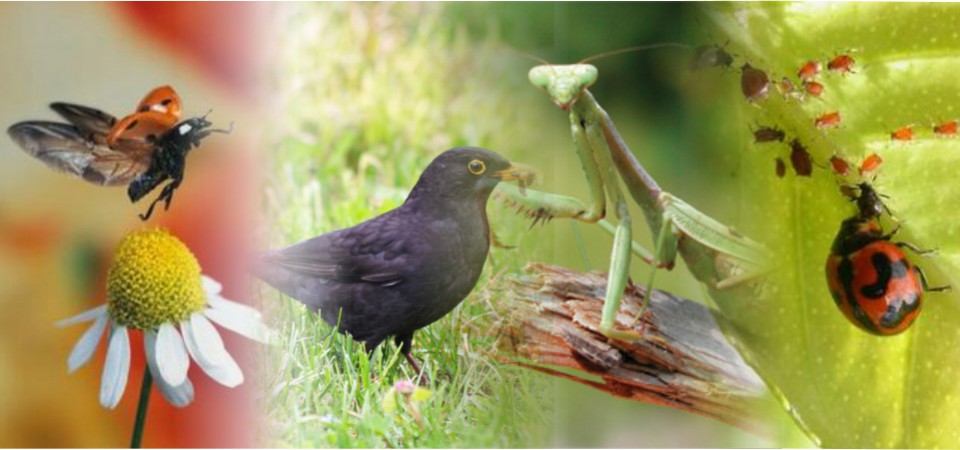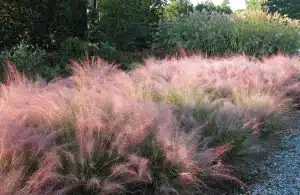Every gardener, whether growing for beauty or for food, must battle pests. To keep your garden ecosystem healthy, it’s vital to understand common pests and how to control them organically.
After all the hard work of fertilizing, tilling, and planting, a critter can appear overnight, and all your greenery can turn yellow, or vanish into the belly of a squirrel or deer. This can madden even experienced gardeners!
The most common garden pests fall into two main categories: vertebrates and invertebrates. This article looks at the most common pests and natural ways to repel garden pests.
Natural Methods for Controlling Common Invertebrate Pests
There are so many invertebrate garden pests, it is beyond the scope of this article to list all of them. So, we’ll focus on a selection of five most common ones and the organic solutions you can use to deal with them at home.
Organic Solutions for Aphids
Aphids are tiny soft soft-bodied insects that cluster on new growth and suck the plant sap, which causes stunted growth and curling leaves. One solution is to spray them with a mix of water and a few drops of dish soap and neem oil, or insecticidal soap. Another option is to introduce a beneficial insect to the garden, ladybugs or lacewings, for example.
Additionally, planting nasturtiums or marigolds as companion plants can help to repel aphids.
Organic Solutions for Slugs and Snails
Technically, slugs and snails are soft-bodied mollusks that feed on leaves, especially at night or after rain, and leave ragged holes and slime trails behind. To combat the potential damage done by slugs or snails, diatomaceous earth around plant bases or copper tape can deter them.
Also, shallow pans or plates filled with beer placed around the garden bed will attract slugs and snails. If that fails, then try picking them off in the evening when they are more active and easier to find.
Plant rosemary and sage nearby as these plants are slug and snail deterrents. Conversely, avoid planting lettuce near slug-prone areas, as slugs and snails are attracted to lettuce.
How to Control Japanese Beetles with Natural Methods
Japanese beetle pests can do incredible amounts of damage with their voracious appetite for leaves, buds, and flowers, leaving little behind, but the well-prepared gardener can handle them. If you time it right, adding milky spore to your garden soil will get rid of the grubs before they even develop.
If that’s not an option, beetle traps are easy to use, but since they attract the beetles must be located away from the area where the garden is located. Apply neem oil or soapy water. If all else fails, pluck the beetles off infested plants and drop them into a bucket full of soapy water.
Excellent companion plants include garlic, scallions, catnip, and marigolds, which may help keep the beetles under control.
Dealing with Tomato Hornworms and Caterpillars Naturally
Regular caterpillars and tomato hornworms are the larvae of moths and butterflies and will eat their way through both the leaves and fruit of the plant. Tomato hornworms are bright green with white markings. Pluck them right off the vines, if you can spot them, as they can do a lot of damage before you do.
By planting dill, fennel, and borage, predatory insects can be attracted to the garden and naturally solve the problem. Another option is to introduce Bacillus thuringiensis to the garden, as it is a natural bacterium that targets caterpillars specifically.
Reducing Spider Mite Infestations Organically
These microscopic arachnids thrive in a hot, dry environment and are very hard to spot until the leaves turn yellow and spotty, then fall off. Solutions include increasing moisture around the affected plants and spraying with neem oil or insecticidal soap. Both garlic and chives are good companion plants to reduce spider mite infestations. Try spraying the affected plants with water to dislodge the mites before treating them.
Organic Solutions for Common Vertebrate Garden Pests
Besides the creepy crawling varieties of garden pests, there are also many critters with four legs – and most importantly, mouths and stomachs – that can decimate a garden. Here are a few of the most annoying pests and some potential solutions.
Keeping Rabbits Out of Your Garden Naturally
Cute fluffy bunnies become enemy number one and much less adorable when they have invaded a garden and taken every last squash off the vine.
Low border fencing around the garden can deter rabbits and make a big difference. Your fence needs to be 2 feet tall. Bury it at least 6 inches down, because rabbits will burrow under otherwise.
If a short fence is too much extra work, try either commercial or homemade garlic/chili spray as a repellent. Add plants such as lavender, onions, rosemary, and marigolds, which bunnies really do not like for their smell or taste.
Natural Ways to Deter Deer from Your Garden
As far as garden pests go, deer will eat shrubs, flowers, and vegetables right down to the ground. If you fence in your garden, it will need to be at least 6-8 feet tall. If that is not an option, liquid fences are available and contain substances that have a powerful, unpleasant odor that repels deer and rabbits, too.
As another option, solar-powered ultrasonic devices repel deer with soundwave technology. If those options are too costly, try light reflectors, motion-operated sprinklers, or even egg-based deer repellents, which can be effective.
Deer do not like sage, thyme, foxglove, or lambs ear- so plant a deterrent border around your garden beds. An added bonus – these plants are pretty and smell great to humans!
Stopping Squirrels from Eating Your Plants Organically
These adorable and yet annoying pests eat a lot more than acorns. Squirrels dig up bulbs and will eat almost any fruit or vegetable they find in the garden.
One solution is to sprinkle fox or wolf urine around the beds as a repellent, use fine mesh garden cover over growing plants, or even to plant sharp sticks or skewers into the ground around vulnerable plants to make them difficult to access. Sprinkling blood meal or cayenne pepper around plants can also be effective.
Squirrels do not like mint, so plant it around the areas where it’s needed – but watch out since mint can take over a garden.
In Conclusion
A successful garden takes much planning and preparation. It requires a significant investment of time and labor, not to mention the costs, so make sure that by the time midsummer rolls around the effort put into the garden is rewarded with a beautiful abundance of fruits, vegetables, herbs, and cut flowers.
This organic garden pest control guide helps you manage common culprits and protect your plants. By using organic repellants, physical barriers, and biological control, you can control pests naturally without harmful chemicals. Pollinators are left to do their jobs, and you can enjoy an abundant and healthy harvest.
For professional assistance with all your landscape and garden needs, or to ensure your property remains a beautiful oasis, contact the experts at Oasis Landscapes today for a free consultation. Happy Gardening!








